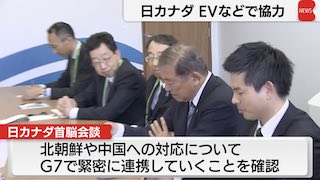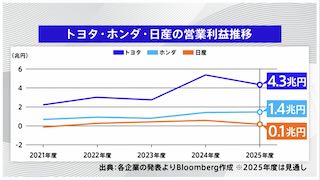TOKYO, Oct 02 (News On Japan) - In Japanese business culture, a 'playing manager' refers to a manager who oversees the team while also performing as a front-line player. This role is commonly assumed in the mid-managerial phase, often at the section chief level, where the experience and knowledge gained significantly impact the individual's career trajectory.
The presidents of Earth Corporation, Kracie, and Loft navigated their journeys through various crossroads, especially during their "playing manager" days.
Being a "playing manager" involves balancing the management of subordinates with active involvement in the business scene. Those who successfully overcome various challenges during this time often embark on a path toward top management positions. The three presidents share insights into their early years, how they overcame obstacles as playing managers, and their journeys to becoming the heads of their respective companies.
Kracie President Masahiro Iwakura: Born 62 years ago, Iwakura became the president of Kracie after navigating the company through various critical periods. Although Kracie is known for its popular products, the company itself was not as well-recognized. Founded in 1887, Kracie's predecessor, Kanebo, had a rich history but faced a financial collapse in 2004 due to massive debt.
Iwakura joined Kanebo in 1985 and was assigned to the Osaka office's daily goods sales department. During his 16th year in the company, in 2000, he was promoted to the personnel department as a section chief. Around that time, he noticed ominous signs in the company. The collapse of Kanebo was primarily due to risky investments in real estate during the bubble economy, leading to a debt crisis. However, many within the company were unaware or dismissive of the impending financial troubles.
In 2004, Kanebo sought support from the Industrial Revitalization Corporation of Japan (IRCJ) due to its financial collapse. Iwakura, then a playing manager, worked on the company's reconstruction while serving on the front lines. With the IRCJ's intervention, Kanebo's cosmetics division was sold off, and the company's reconstruction efforts began.
Iwakura found himself at a crossroads during the restructuring. Initially, he intended to manage the daily goods division using conventional strategies, focusing on cost-cutting and efficiency. However, the IRCJ advocated for bold investment and aggressive reform. Tensions between the old guard of Kanebo and the IRCJ ran high. As time passed, Iwakura began to see the merits of the IRCJ's approach. The turning point came when Iwakura decided to adopt an open-minded stance, opting for bold innovation and investments. This decision led to the revival of Kanebo's popular body soap, "Naive," which became a symbol of the company's turnaround.
In 2007, Kracie was established as the successor to Kanebo's daily goods, pharmaceuticals, and food divisions. Iwakura played a crucial role in the new company's management and was eventually appointed president in 2018. His experience during Kanebo's collapse taught him that embracing risks is necessary for success. This year, he made another significant decision to merge the company's three separate business divisions into one, believing that continued evolution is key to the company's success.
Loft President Koki Ando: Ando, aged 66, is known as the president of Loft, a popular variety store known for its fun and unique product lineup. Loft has grown to operate 169 stores across Japan, achieving a record high of 107.1 billion yen in sales last year. Ando's journey began at Shibuya Loft, where he started as a founding member and a legendary buyer who contributed to Loft's growth.
However, his path was not without struggles. During his time as a playing manager, Ando faced numerous challenges, including managing product selections and navigating market trends. Despite the pressures, his perseverance and innovative ideas paved the way for Loft's success.
Koki Ando's role as a playing manager at Loft wasn't easy. He had to juggle managing his team while actively being involved in product selection, inventory control, and staying ahead of market trends. During his early years, Ando faced fierce competition in the retail market, often experiencing setbacks and doubts about the direction the business was taking.
One of Ando's most significant challenges came when he had to decide whether to introduce bold changes to the store's product lineup. While the traditional retail model emphasized caution and consistency, Ando felt the need to take risks to keep the store appealing. This philosophy of offering a diverse, fun, and unique product range has become Loft's hallmark. Ando's willingness to experiment with products not only brought vibrancy to the store but also fostered customer loyalty. His journey as a playing manager, filled with trial and error, was instrumental in shaping Loft into the successful retail chain it is today.
Earth Corporation's President Masaki Tsukamoto: Earth Corporation, known for its household goods and pest control products, also has a story of navigating through pivotal moments. Tsukamoto, who eventually became the president, started his career at the company as a playing manager. Like Iwakura and Ando, Tsukamoto had to balance managing his team while being on the front lines of sales and product development.
During his early years, Tsukamoto encountered various challenges, from managing production costs to maintaining product quality. However, one of his most critical decisions came when he had to innovate in a saturated market. By introducing unique product lines and enhancing existing ones, Tsukamoto steered the company towards a more customer-focused approach, which played a crucial role in boosting Earth Corporation's market presence.
In Japan, the "playing manager" role is crucial for business operations. According to a survey, 95% of department heads and section chiefs in Japanese listed companies are playing managers, highlighting their importance in corporate Japan. This dual role requires managers to not only oversee their teams but also to actively contribute to achieving organizational goals through front-line work. Their experiences as playing managers often become the foundation for their growth into executive positions.
Each president featured in this article has shown that overcoming obstacles during their playing manager days shaped them into the leaders they are today. For example, Iwakura's experience of leading Kracie's turnaround post-Kanebo's collapse taught him the importance of embracing change and risk. Ando's journey at Loft demonstrated the value of constant innovation and flexibility in retail. Meanwhile, Tsukamoto's focus on product development and customer-centric strategies guided Earth Corporation to success.
Overcoming Crisis and Embracing Change For many of these executives, pivotal moments occurred when they had to make tough decisions that defied conventional corporate norms. Iwakura, for instance, had to set aside the pride of Kanebo's long-standing brand and embrace the reforms proposed by the Industrial Revitalization Corporation of Japan. Ando, on the other hand, pushed the boundaries of traditional retail by incorporating fun and unexpected products into Loft's lineup.
Source: テレ東BIZ















